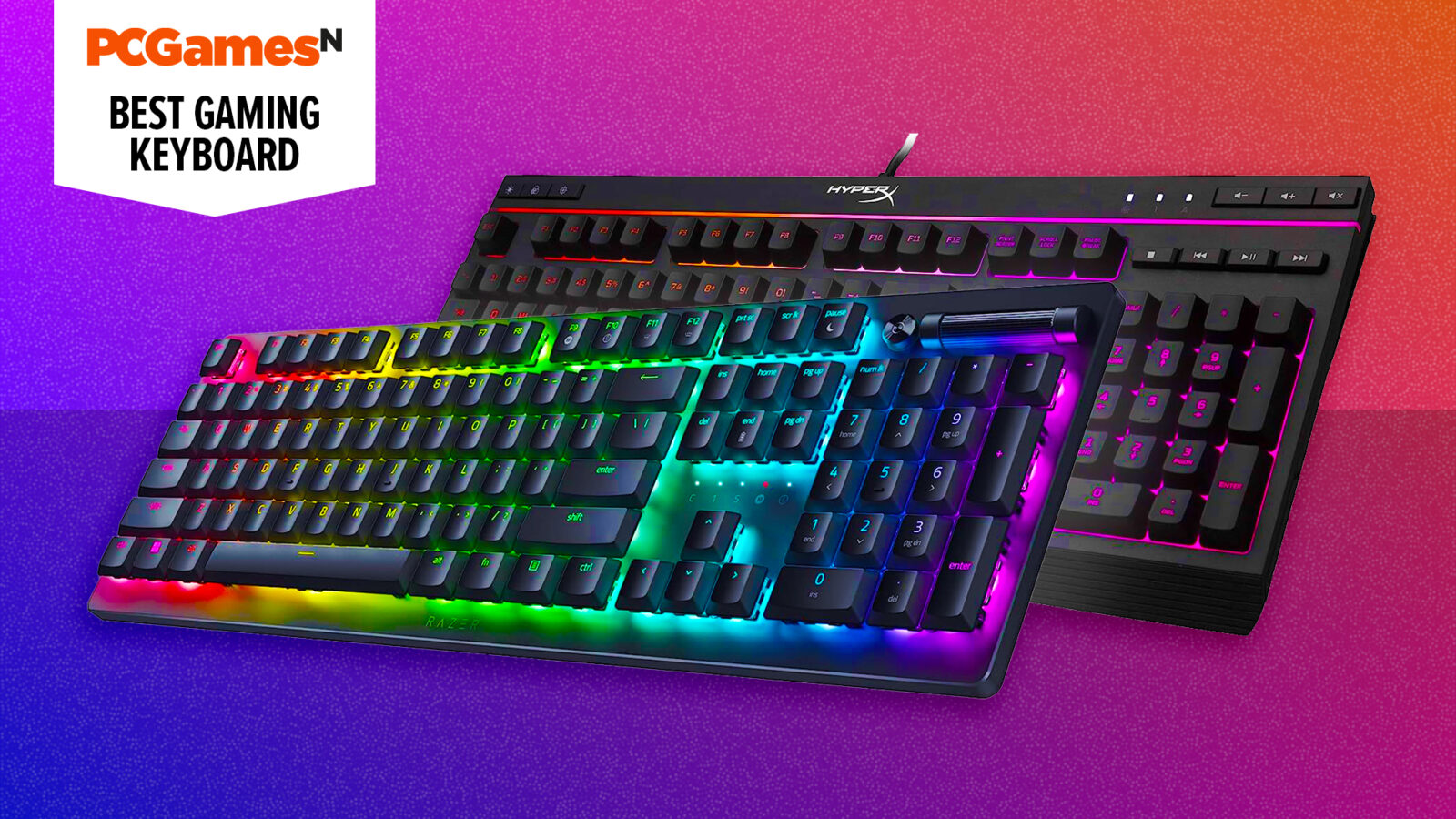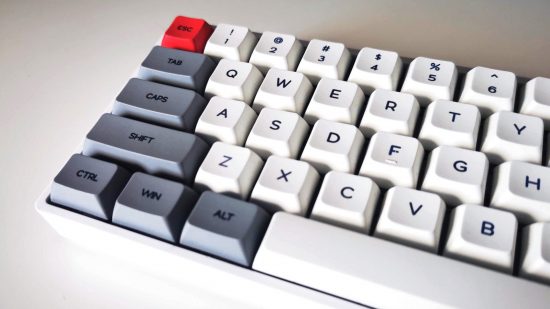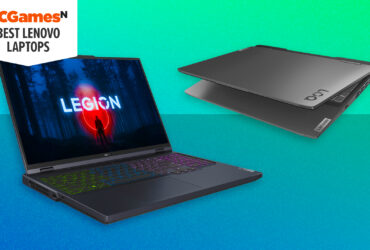Arming your setup with the best gaming keyboard will make a difference, whether you’re into first-person shooters or epic RPG adventures. Sure, you can technically get by using WASD keys on any old keyboard, but your fingers will thank you if you arm them with high-quality mechanical switches and gorgeous keycaps.
PCGamesN’s peripherals experts have tested a wide range of wireless keyboards, mechanical keyboards, wired keyboards, and optical-mechanical keyboards to bring you a list of the very best. No matter what your budget or preference is, you will find the right gaming keyboard to meet your needs.
Great gaming keyboards will pair well with the best gaming mouse, and will ultimately help bolster your desktop experience. If you’re specifically looking for the best wireless mechanical keyboard, rather than wireless or membrane ones, then check out that guide for a full range of options.
Why you can trust our advice ✔ At PCGamesN, our experts spend hours testing hardware and reviewing games and VPNs. We share honest, unbiased opinions to help you buy the best. Find out how we test.
Best gaming keyboards 2024:
How to choose the best gaming keyboards
When looking for the right keyboard (either among those on this list, or elsewhere) we recommend considering all the following points before making a decision:
- Pricing: We understand that some people are going to have to make a decision exclusively based on what they can afford. If that’s you, you can still find some decent quality gaming-focused keyboards for around $30 (£25) but going much lower than that can bring one too many compromises. Even at that price, the main compromise is you’ll have to miss out on mechanical keys. That means the keys will tend to be not as responsive and not last as long, but that’s why they’re so cheap. At around $50 you can get ‘no-name’ mechanical keyboards that can be decent but you’ll be looking at $70-$80 and higher for mechanical boards from known brands.
- Gaming keys: Gaming keys were originally the main thing that defined a gaming keyboard. They give you extra buttons to press to fire of macros or other commands, with needing to reassign other keys. These days, there’s less focus on them but some people still prize having dedicated extra keys.
- Media keys: These are the volume wheels, mute buttons, and play/pause/skip track buttons that some keyboards come with. You can also find some keyboards that come with screens and multi-function dials. They’re all super-useful features though more for general desktop use than actual gaming.
- Mechanical vs membrane: Membrane or rubber dome keyboards are a cheaper form of keyboard that uses switches where the spring and switch contact is formed by a rubber dome that you press on. Meanwhile, mechanical switches use individual springs and either metal contacts or magnetic or optical sensors to tell when the switch is pressed. Membrane keyboards can be very cheap and quiet but don’t feel as nice, lack customization, and don’t last very long. Mechanical keyboards are more expensive but last ages and can be customized with different switches and keycaps.
- RGB lighting: Is it an essential addition, or simply a flashy extravagance? That’s for you to decide but some for of backlighting is useful for seeing keys properly in darker environments. Some cheaper boards have only zones of lighting while others have per-key lighting for highly-programmable light shows.
- Wired vs wireless: It used to be the case that wireless technology wasn’t responsive enough for reliable gaming performance but these days it works great. Wireless keyboards are more expensive, though, and you need to charge them once a week. A simple wired board won’t ever suffer a disconnect or need charging, though.
If you’re still left with questions, we’ve answered a few keyboard-related FAQs below:
Do I need a gaming keyboard?
The line between a gaming keyboard and just a decent quality keyboard has blurred in recent years. It used to be that a gaming keyboard was one with extra gaming keys but these days it tends to just mean it has RGB lighting. Ok, we exaggerate. Most gaming keyboards are also optimized for a rapid response whereas non-gaming models might prioritize battery life but leave you hanging when it comes to a crucial in-game moment.
Extra gaming keys can still be useful if you like to fire off complex actions at the touch of a button and don’t want to reprogram other keys. Meanwhile, the other three main factors to consider for gaming are: size, key switch feel, and analog actuation.
When it comes to size, some people just prefer larger keyboards with all the extra features. However, many gamers now prefer smaller keyboards without numpads, as these leave more desk room for your mouse. As for key switch feel, many gamers prefer very light-feeling, linear switches rather than the heavier, more feedback-heavy feel of tactile or clicky switches. Light, linear switches can be easier to press in a lighting-fast reaction situation.
Finally, analog switches provide the ability for keys to function like the analog trigger of a controller. That alone isn’t super useful but the same function means you can assign two trigger points to one switch, have a rapid trigger mode where keys can respond super fast, or you can adjust the height at which the key activates. The latter is useful if you’re someone that tends to accidentally press some keys in some gaming scenarios.
What are mechanical switches?
PCGamesN has a comprehensive guide on mechanical keyboard switches, which will quickly make you an expert on all things clicky, linear, and tactile.
In a nutshell, there are two main types of keyboard switches: mechanical and membrane. The latter are cheaper to make so can be found on ultra-budget boards, plus they can be very quiet. However, they tend to not feel as responsive or last very long. Mechanical switches offer a more reliable feel and response and they last far longer, plus you can swap the keycaps and many boards let you swap the switches too so that you can experiment with different mechanical switches to find the ones you prefer – look for the switches being hot-swappable.
Can a gaming keyboard make you game better?
It certainly can. Gaming keyboards tend to prioritize response over other factors so are less likely to leave you frustrated after a crucial key tap produces no result (or a delayed result) on screen. This is particularly true when it comes to wireless gaming keyboards. Keyboards with mechanical switches also tend to offer a more reliable, faster response than membrane keyboards, though that’s true whether the keyboard is a ‘gaming’ one or not. Meanwhile, extra gaming keys dome people find are a crucial addition while the programmability of gaming keyboards can also help to optimize your gaming setup. Finally, if you do opt for an analog mechanical keyboard, these can really help you further fine tune the exact response of ever key to your needs.
Do I need an expensive gaming keyboard?
Need is a subjective word. If you just want any gaming keyboard to get going, cheap membrane keyboards will still be optimized for quick response and tend to have better-feeling keys than really cheap sub-$20 boards. When it comes to mechanical keyboards, the cheaper models are inherently more basic but will still offer most of the core response feel and reliability of more expensive boards. If you really value complete control, though, top-tier boards offer so much customization and amazing build quality.
If you want more help in building the perfect gaming set-up, read our article on the best gaming PC. Even an amazing keyboard won’t make a difference if you’re using it on a potato that hasn’t even been baked.












Leave a Reply